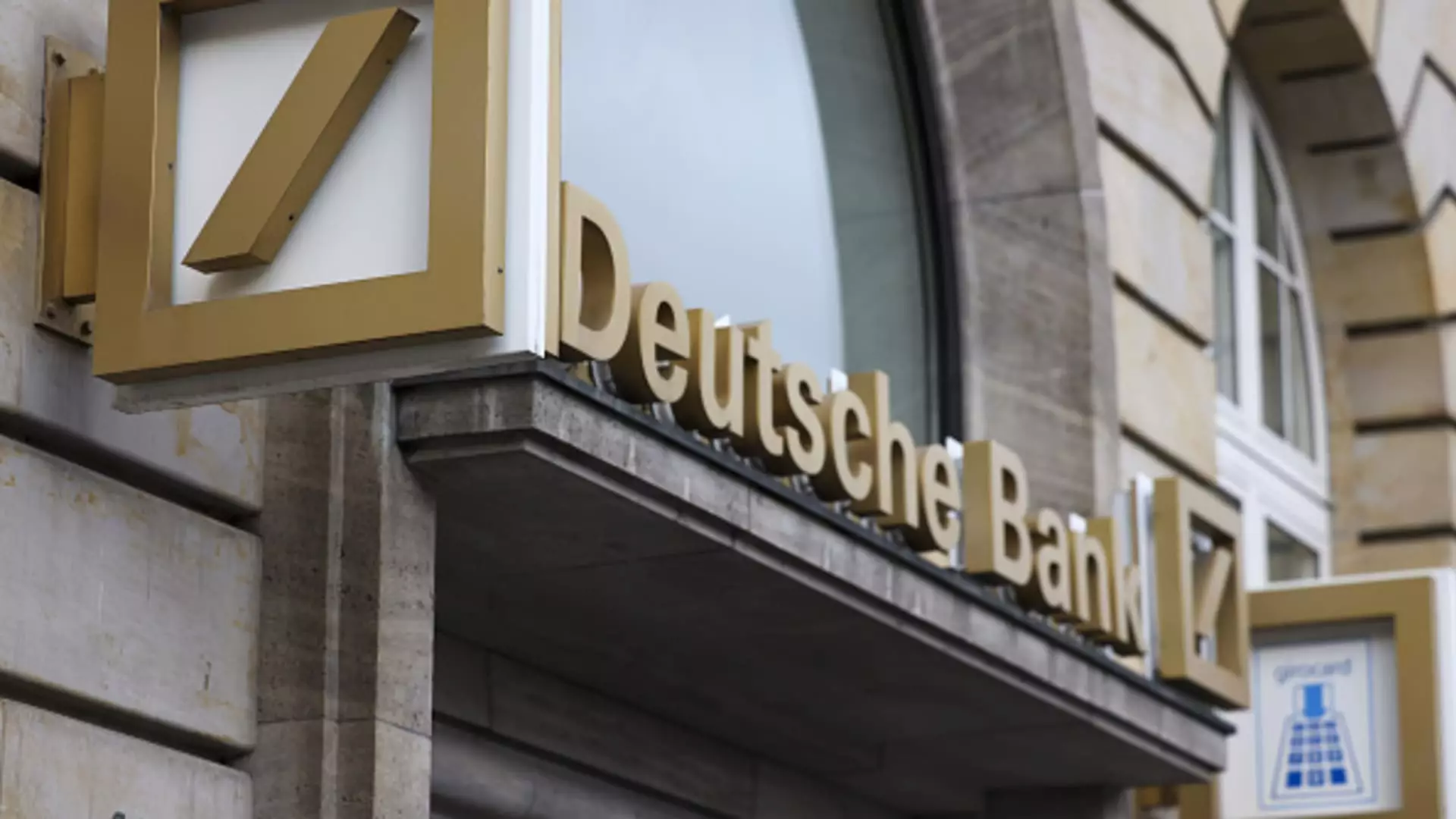Deutsche Bank’s recent financial report heralds an impressive milestone for Germany’s largest lender. With a net profit of 1.775 billion euros ($2.019 billion) in the first quarter, the bank not only exceeded analyst predictions but also demonstrated a remarkable 39% increase compared to the same period last year. This robust performance defies the turbulent backdrop created by U.S. trade policies and offers a glimpse into the bank’s ongoing strategic adjustments in the face of external pressures. CEO Christian Sewing proudly declared this quarter as “our best quarterly profit for fourteen years,” positioning Deutsche Bank on a path to meet its ambitious 2025 targets.
Resilience and Adaptation in a Changing Economic Landscape
The financial results reflect more than just numerical success; they signal the agility with which Deutsche Bank is navigating a shifting economic terrain. The bank’s ability to adapt is evidenced by its strong performance in investment banking, which played a crucial role in compensating for declining loan profitability. The firm has skillfully maneuvered through the complexities of lower interest rates, successfully boosting its investment division’s revenues. This strategic focus on investment banking aligns perfectly with their recent goals, illustrating the bank’s foresight in capitalizing on varying market dynamics.
The significant increase in revenues—up 10% year-on-year to reach 8.524 billion euros—demonstrates that Deutsche Bank is not merely surviving but thriving amidst adversity. With asset management revenues climbing by 18%, the bank is showcasing its comprehensive financial services strategy designed to cater to a diverse clientele in tumultuous times.
Geopolitical Uncertainties Bring Caution
Despite these resilient financial metrics, Deutsche Bank has prudently opted to increase its credit provisions, raising them to 471 million euros, up from 420 million euros in the previous quarter. This increase highlights a cautious approach in light of the “overlays relating to uncertainties in the geopolitical and macro-economic outlook,” particularly regarding tensions stemming from U.S. tariff policies. Here, Deutsche Bank is taking no chances; by anticipating future economic shifts, the firm is demonstrating its commitment to prudent risk management, ensuring it remains secure in the face of fluctuating market conditions.
The mention of a potential trade war under President Trump’s administration further underscores the precarious atmosphere surrounding international trade, putting enormous pressure on the European banking sector. This risk management is essential now more than ever, as geopolitical tensions threaten to disrupt financial stability across the continent.
Leadership and Future Outlook
Interestingly, this success comes at a time when Germany’s political environment is evolving, suggesting a pivot towards stability under a centrist coalition. With Chancellor Friedrich Merz at the helm, there is renewed optimism surrounding fiscal reforms aimed at bolstering defense and economic growth. This political shift could bode well for German banks, creating a conducive environment for investment and financial confidence.
Deutsche Bank’s CFO, James von Moltke, emphasized the strength of the bank’s investment approach while maintaining expense discipline. His positive outlook, together with the recent governmental reforms, feeds confidence that both the corporate and private banking sectors will gain momentum as the year progresses. The anticipation of increased regional investment offers a promising horizon for Deutsche Bank and its competitors, making the banking landscape increasingly competitive.
Analysis of the Investment Landscape
Furthermore, Deutsche Bank’s strong performance in credit trading, rates, and corporate finance reflects its strategic positioning in the market. Although challenges persist in the form of U.S. trade tariff tensions, the bank’s ability to hedge against risks provides a layer of security. It is clear that despite the present uncertainties, Deutsche Bank remains well-prepared to exploit growth opportunities in its core investment functions.
The emphasis on a strong foundation of asset management and investment banking creates a diversified portfolio for shareholders, presenting a compelling narrative for future investors. As European markets begin to stabilize politically, Deutsche Bank stands to capitalize on the emerging economic potential, bolstered by increasing investor confidence.
Deutsche Bank’s latest financial results encapsulate both a triumph and a strategic resilience that the bank has exhibited amidst considerable geopolitical turbulence. With a firm grip on risk management and a forward-looking approach to investment, the bank appears well-equipped to navigate the shifting sands of both the economic and political landscapes. This balance of caution and ambition could very well define Deutsche Bank’s trajectory in the coming years as it seeks to cement its place in the global financial arena.

